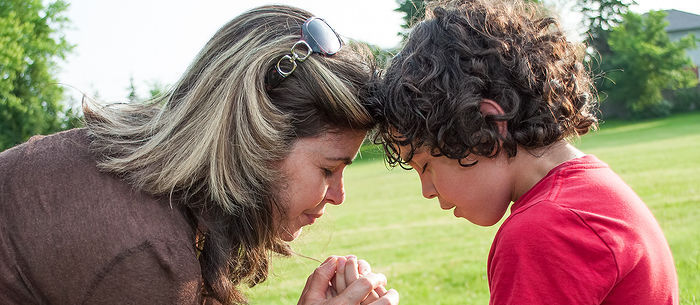Parents tend to fall into a lot of traps when it comes to disciplining children, and this can make the process much more difficult than it needs to be. Many of these traps can lead to parents going back on their word, losing control, or pleading – all of which weaken their position as discipline enforcer.
Here we have identified 11 common mistakes that parents make in disciplining children:
- Setting unrealistic ultimatums
For instance, the “you can’t leave the table until you’ve eaten your vegetables” ultimatum. This is often viewed by children as challenge, and at some point, many parents end up having to go back on their word. After all, if they persistently refuse to eat, do you sit there all night? This seems to be an unproductive and time-wasting solution for both parties.
A better approach is to not set up a power struggle in the first place. If your child won’t eat, shrug it off and say, “I see you’re not hungry.” Then take their plate away and tell them they can have something to eat at the next meal time.
- Being Inconsistent
“Do as I say, not as I do”, as tempting as it may be, is not an effective way of disciplining children. If you expect your child to act a certain way, you need to model that behaviour, otherwise, you’re giving an inconsistent message. Children, by nature, will copy your behaviour – the good and the bad alike.
- Confusing Discipline With Punishment
The goal of discipline is to guide the child to become a responsible, considerate and joyful human being. If your child just hit their sibling, instead of spanking or yelling, explain that it’s never okay to hit and offer alternative responses.
- Bribing
Your child is making a scene at the supermarket, so you bribe them with chocolate to get them to quiet down. Yes, it solves the problem on a short term basis, but all you have done is teach them that they will be rewarded for their bad behaviour.
That being said, you could offer the reward ahead of time i.e. telling your child that if they are good at the supermarket, they can have a chocolate bar after dinner. This is a win-win for both of you. In this scenario, their good behaviour is rewarded, not the bad.
- Disciplining While Angry
If you discipline your children while you are angry, you see your child as the enemy. This sabotages your goal of correcting the behaviour. Your child shuts down when this happens. Children need to know that you love them no matter what.
- Not Having a Strategy
When you react to misbehaviour without a plan, you’re probably not being effective. Children can sense your weak spots and will exploit them if they can, so make sure you come prepared with a consistent response to bad behaviour.
One approach that has stood the test of time is the ‘counting to three’ system. If your child argues back when you tell them they can’t have a cookie before dinner, say, ‘That’s one.’ If you get to three, your child gets a predetermined consequence.
- Not Paying Attention to Your Child’s State of Mind
Maybe your child acts out when they’re hungry or tired. When fewer or simpler directions are given to a tired and grumpy child, you’ll see fewer problems. - Talking Too Much
Parents often feel they need to lecture their children about the rules every time they misbehave. Many times, however, children already know what they’re doing is not allowed, and in these instances, it is best not to say anything at all.
Show your child that you are in control by not arguing, yelling or bartering with them. For instance, if your children are throwing a ball around inside the house, simply confiscate the ball and walk away.
- Waiting Too Long
Your children have been bickering in the car, but you just want to get to where you’re going, so you say nothing. When we put up with things too long and end up being pushed to the limit, we go over the edge. The best way to deal with this problem is to stop it before it starts. Separate your children or give them separate toys to keep them occupied.
- Not Connecting With Your Child
Your goal when disciplining your children is to get them to want to do the right thing versus doing the right thing out of fear. Do this by establishing a connection with your child. Let them know that you understand why they misbehaved and that you love them no matter what. Now they’re open for your correction and guidance.
- Not Praising Good Behaviour
Praise is very powerful, but most of us don’t say anything when we’re happy. When you notice that your children have been playing nicely, tell them how proud you are of how well they’re playing together. A positive relationship gives you a favourable advantage and makes all your parenting strategies more effective and potent.
